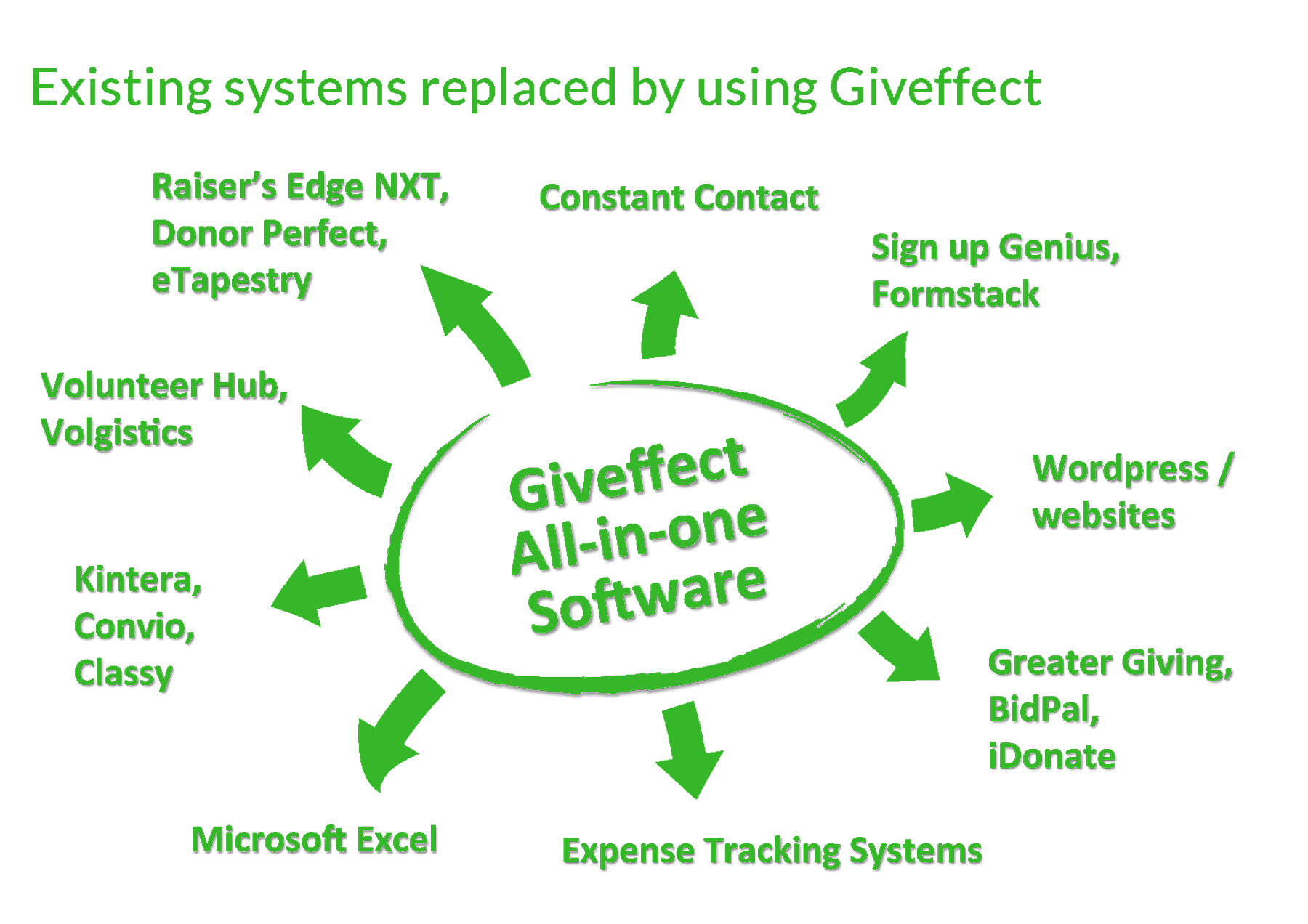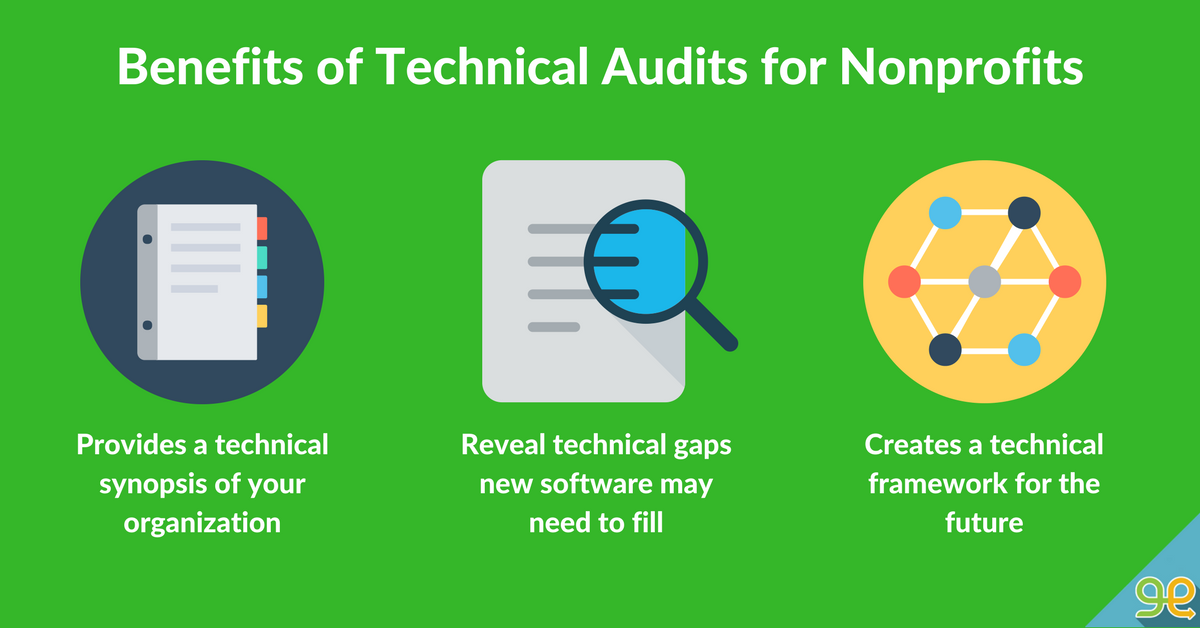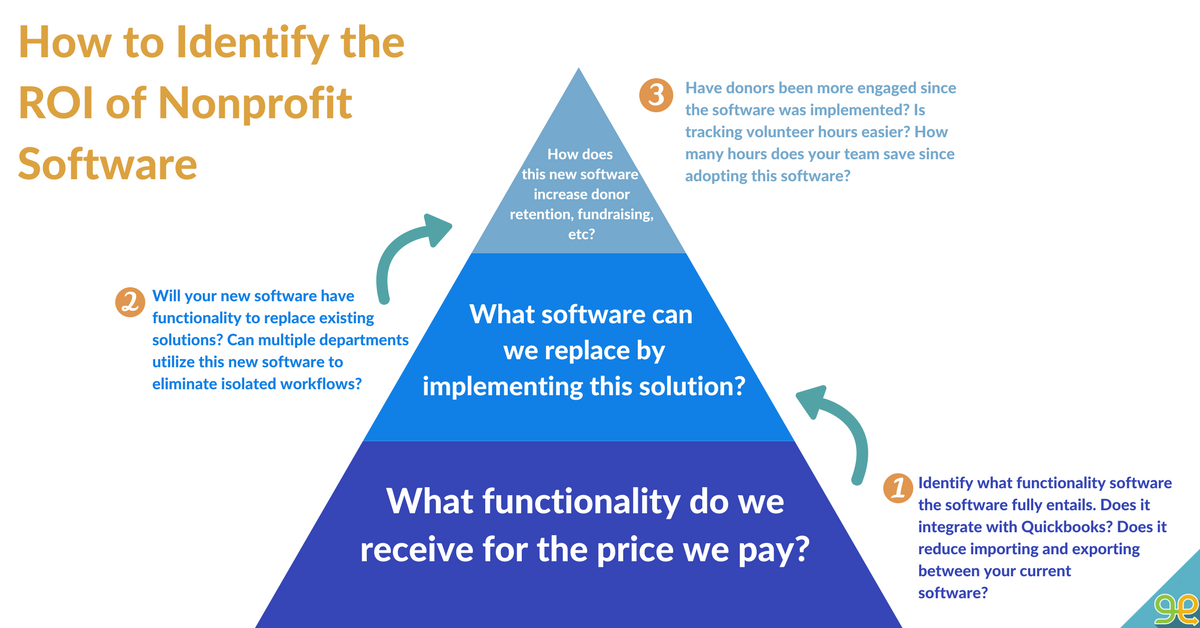The end of the fiscal year is approaching and you’ve been tasked with assessing potential nonprofit software for the organization to adopt. You begin reliving the difficulties other nonprofit professionals have experienced transitioning to new nonprofit systems, and then you cringe.
At first, you begin distilling down your search by considering your nonprofit’s goals and it’s short & long-term software needs. However, it immediately becomes apparent that nonprofit software exists for almost every department your organization has. How can one possibly sift through the noise and choose a solution that brings your entire organization together seamlessly?

Navigating through different software solutions shouldn’t be a chore, and it doesn’t have to be. Here are three questions you should be asking to make sure you adopt an optimal software that fits your organization’s needs.
How will new nonprofit software implementation affect my team?
You may be a volunteer coordinator that is frustrated with an inefficient process of tracking hours, assigning shifts, and creating automated email reminders for your volunteers. Or maybe you’re development director seeking to optimize your moves management workflow to potentially grow your organization’s major gifts and donor base. Considering the tools your team uses now to solve these problems, what specific issues hinder your potential for growth? How do these issues inhibit your team from working more efficiently?
Giving attention to these questions are critical to when deciding whether to carry out a new software solution, as your team knows first hand what they struggle with the most as well as what will catalyze their growth. Creating focus groups can produce insightful conclusions when considering to replace or supplement an existing software solution as well. Trusting your team in these scenarios can go along way in getting everyone on board to implement new tools and will aid you in making a case to your executive team.
How will adopting new software interact with what you’re using now?
One of the most important considerations when exploring nonprofit software is the current technical landscape of your organization. How will this solution interact with your organization’s current software stack? Will the learning curve to integrate the two be worth the time investment from your team? Here is where conducting a technical audit of your organization is crucial to the success of your software search. At this point in your search, the benefits of conducting a comprehensive technical audit of your nonprofit are invaluable:

Technical audits aide in revealing the gaps new software may need to fill and will lay the groundwork for making software changes in the future. Moreover, an in-depth technical audit highlights which software tools each department in your organization utilizes, and how their workflows may change if a new software is adopted. The last thing your executive team will be interested in is implementing new software that is clunky and requires hours of manual data entry just to import and export between your current software solutions.
A turnkey software that creates a unified approach out of the box should be the standard, as your team will thank you for savings in time and labor. From donor management and accounting software to volunteer management and wealth screening tools, an optimal software solution should create an integrated experience across multiple departments. In short, new software should assist in consolidating your workflows, not siloing them.
Data migration from internal sources normally precedes the implementation of new software as well, so you should examine similar organizations who transitioned to using the software you’re considering. In the end, the onboarding process may be the deciding factor if you’re struggling to decide between two similar software choices.
What is the potential ROI of implementing new nonprofit software?
As with any executive team, you’ll need to present a compelling financial argument for any new nonprofit software implementation. However, before you can provide any concrete analysis, you may want to consider conducting a process audit of the essential departments of your organization (Donor & Volunteer Management, IT, Development, Marketing/Communications, etc.). A thorough process audit will also provide clarity to your organization regarding where the opportunities lie for streamlining pertinent workflows.
One organizational challenge particularly facing nonprofits can be nailing down the ROI of nonprofit software investments. Without getting too far into the weeds, here are some questions which can provide a framework to understand how to approach your software ROI.

Your research should also consist of looking up 3rd party reviews of current customers, especially if they serve similar nonprofits or affiliates in your organization. Sites like G2Crowd offer a robust supply of unbiased and comprehensive reviews from a myriad of software providers to get your search started. Be sure to investigate how the software affected donor growth and retention, volunteer to donor conversion rates, and the overall cost of the implementing software (support, customization, etc.). If your executive team is concerned about the ROI of your current software stack, finding a piecewise solution may not be the best fit. You may want to consider an all-in-one software that can consolidate your current efforts while providing robust features to expand your nonprofit’s reach.
Nonprofit software implementation can be challenging, especially factoring in external costs such as data migration and added support. Executing a new software approach requires your entire organization to be on board and a reasonable ROI compared to what you’re already using. In the end, implementing new technology should also work in tandem with your current approach, and not create more busy work for your team. It may also be time for a modern software that brings your team together and empowers them to be more efficient in fulfilling your organization’s mission.
